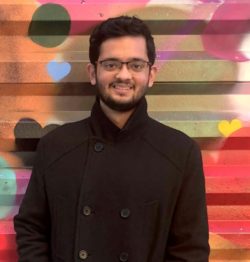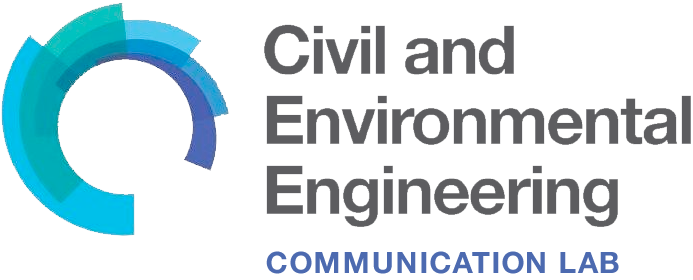 Sid Pai is a senior graduate student in the Heald Group in MIT’s Civil and Environmental Engineering (CEE) Department. Sid has been with the CEE Communication Lab (CEECL) since May 2021, helping out with workshops, panels, and coaching students and postdocs in the department on various science communication topics.
Sid Pai is a senior graduate student in the Heald Group in MIT’s Civil and Environmental Engineering (CEE) Department. Sid has been with the CEE Communication Lab (CEECL) since May 2021, helping out with workshops, panels, and coaching students and postdocs in the department on various science communication topics.
In this post, the second in our series of Q&As with CEE Comm Lab Fellows, Sid discusses both his doctoral research and his work as a CEECL Fellow, sharing insights on his experiences and on the value of peer-to-peer communication tutoring.
What intrigues or inspires you as an MIT CEE grad student?
I think of environmental engineering as a uniquely interesting discipline. It requires the study of some of the most complex and inscrutable problems we face as a society while also offering some of the simplest and most viscerally relatable benefits. Clean air, clean water, and the simple bounties of a well-balanced natural ecosystem should be fundamental to any modern society, but ensuring a continued and sustainable access to them is anything but simple. As a doctoral student in Course 1 (MIT CEE), I’ve had the privilege of working with a large number of talented colleagues who are passionate about pushing the boundaries on our ability to understand and improve environmental outcomes for millions of people across the globe. Watching them dedicate their careers to making progress towards this seemingly daunting task has been both intellectually intriguing and professionally inspiring.
Tell us a little about your work in the CEE Comm Lab (CEECL). What have you been doing lately as a Fellow and peer-to-peer communication coach?
I started as a CEECL Fellow in the summer of 2021, and I’ve spent most of my time working with undergrads, grad students, and postdocs in the department as a peer-to-peer communication coach. Our sessions have spanned a variety of different topics, including grad school submissions, fellowship applications, journal article drafts, blog posts and research presentations. Most engagements are completed over the course of one or two appointments. But I’ve also had the chance to work deeply with a few clients over the span of multiple months and help meaningfully with the accessibility of their work product. I’m graduating soon and while I’m sad to leave CEECL, it’s been a fulfilling and rewarding experience to work with my colleagues on advancing science communication in the department over the past year.
Why did you decide to apply to become a CEECL Fellow? How has the experience been for you?
I believe in the mission of the Comm Lab, and I have confidence in its ability to provide a unique flavor of value to early-career researchers in the department who are looking to improve their communications skills and finesse their work product. So far, it’s been a fulfilling experience. That said, a large component of the CEECL value-proposition comes from its accessibility (relative to other more formal offerings on campus). With COVID restrictions over the past year, it’s been challenging to build community buy-in to some of the offerings. I’m confident that this will change over this coming year, with our programming shifting back to a more intuitive and organic format.
What do you most enjoy about being a peer-to-peer communication mentor and Comm Lab Fellow, and why?
When I work with my colleagues in the department, I’m usually able to relate to the challenges they’re facing and the different considerations they’re trying to balance, having often gone through similar experiences over the course of my own academic trajectory as a grad student. It’s a particularly satisfying feeling to recognize these patterns and provide targeted feedback based on a very contextual understanding of their needs. It’s this kind of very context-specific engagement that I enjoy most about being a peer-to-peer mentor.
You can connect with Sid via LinkedIn. Learn more about the CEE Comm Lab and book an appointment with a Fellow on our website.
